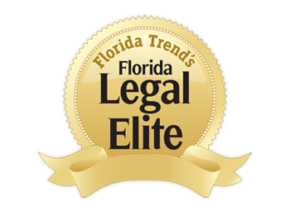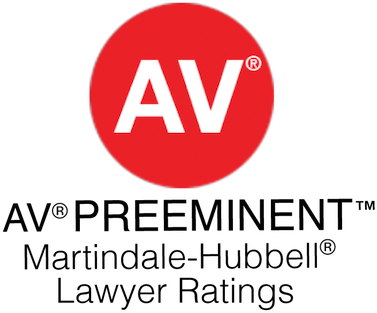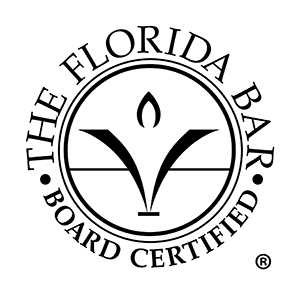Airbnb Injury Lawyers Florida
Vero Beach, FL
When taking a vacation, you might want something more than a hotel room. Perhaps you have a large group traveling together or you simply want more space for your family. In this situation, you might turn to Airbnb to find a short-term rental property.
While an Airbnb can be a great solution, there are challenges that arise – such as figuring out what to do if you get hurt during your stay. These injuries are usually covered by Airbnb’s $1,000,000 host liability policy, rather than the host’s homeowner’s insurance policy. Our seasoned Vero Beach personal injury lawyers will work with you to help you get maximum compensation for your medical bills, lost wages, pain and suffering, and other losses.
Gould Cooksey Fennell represents accident victims throughout Florida’s Treasure Coast. We represent individuals and families on a range of personal injury claims, including slip and fall accidents at Airbnb properties. Reach out to our law firm today to schedule a free initial consultation with a Florida premises liability attorney.
Can You File a Lawsuit for Injuries at an Airbnb?
When someone suffers an injury, they might be able to file a personal injury lawsuit against the at-fault party. This area of law includes premises liability claims, which are a specific type of case that can be filed when a person gets hurt on someone else’s property. The theory behind these lawsuits is that property owners have a duty to maintain their premises in a reasonably safe condition or to warn others about known dangers.
To prove a Florida premises liability case (sometimes referred to as a slip and fall claim), the injured victim (plaintiff) must show the following:
- The property owner (defendant) owed the plaintiff a duty of care;
- The defendant violated that duty;
- The plaintiff suffered an injury; and
- The injury was caused by the defendant’s failure to meet the duty of care.
The duty of care is a legal standard. For slip and fall claims, a property owner – or someone who occupies the property – has a duty of care when there is a dangerous condition on their property and they either knew or should have known about it. If a property owner violates that duty of care, they are said to be negligent.
A property owner’s duty of care depends in part on their relationship to the person who got hurt. Florida law recognizes 3 categories of visitors to a property:
- Invitees enter a property with the owner’s permission, typically for a commercial purpose (such as a customer at a store). Property owners owe the highest duty of care to invitees. This means that the property owner has a duty to either fix hazardous conditions or warn invitees about them. Property owners also have a duty to inspect their property to discover potential dangers.
- Licensees also enter a property with permission, but usually not for a commercial purpose (such as a friend or family member who visits your house). Property owners who have knowledge of a dangerous condition must either fix it or warn licensees about it. They also are liable for willful, wanton, or intentional misconduct that injures a licensee.
- Trespassers are people who are either on a property without permission or who remain on the property when they no longer have permission to be there. In Florida, property owners have a limited duty to trespassers. This duty depends on whether the trespasser is discovered or undiscovered. If a property owner knows that someone is trespassing on their property 24 hours before they are hurt, then they must warn them of known dangerous conditions that are not readily observable. An undiscovered trespasser is someone that the property owner does discover on their property; a property owner is only responsible for intentional harm to undiscovered trespassers.
In Airbnb injury cases, the guests on the property are considered invitees because they are there for the owner’s benefit (financial gain). The Airbnb host owes their guests the highest duty of care. They not only have to fix or warn of known hazards on the property, but they also have an affirmative duty to inspect the property for dangerous conditions.
Under Florida law, Airbnb hosts are required to take extra steps to make sure that their properties are safe for guests – but many hosts might not be aware of this heightened duty. Hosts also may not want to spend the time or money to inspect their property and fix hazardous conditions, especially if they tend to schedule guests back-to-back.
If a guest is injured at an Airbnb, then they may be entitled to financial compensation for their losses. This requires proving that a dangerous condition existed and that the host either failed to fix it or warn guests about it. Your Florida Airbnb injury lawyer may use the following evidence to prove the claim:
- Maintenance records for the property
- Photos and videos of the dangerous condition
- Witness testimony from people who may have witnessed the accident
- Prior incident reports or complaints to Airbnb about the property
- Customer reviews that mention things like uneven sidewalks or slippery floors
This evidence can be used to show that the Airbnb host violated their duty of care to you as a guest/invitee. Together with your medical records, pay stubs, and other documentation, it will be used to develop a strong claim for compensation.
Filing a premises liability claim for an Airbnb injury does not mean that your case will go to trial. In fact, the majority of personal injury lawsuits are resolved outside of the courtroom. However, if Airbnb and its insurance company won’t offer you fair compensation for your losses, then it may be necessary to file a lawsuit – and take your case to trial.
Gould Cooksey Fennell represents accident victims throughout Florida’s Treasure Coast – including both residents and tourists who are hurt while staying at Airbnb properties. We will advocate for you, protect your legal rights, and help you get the best possible outcome for your case.
Who Is Liable for Airbnb Injuries?
In a typical premises liability claim, the injured victim can file a claim against the property owner’s insurance policy. For example, if you fell down the stairs because of a broken stair tread when visiting a friend, you could file a claim with their homeowner’s insurance company. If you slipped and fell in the lobby of a hotel, you would file a claim against their commercial liability insurance policy.
Airbnb claims are different because the properties are owned by individuals – not corporations – but they are used for commercial purposes. A standard homeowner’s insurance policy will not cover claims from a commercial use of the property. If an Airbnb host does not purchase separate insurance coverage, then their policy will almost certainly not cover any guest injuries.
If you are hurt at an Airbnb property, you can file a claim with the company itself. Airbnb maintains a $1,000,000 host liability policy. This policy does not cover intentional injuries, injuries that aren’t related to the property, or injuries caused by illegal conduct, but it will pay for things like a slip and fall on the property. Essentially, if a host is responsible in some way for a guest’s injuries, then the guest can file a claim with the Airbnb policy.
For Airbnb injury victims, this means that you have the ability to access up to $1,000,000 in coverage for any losses that you may have suffered. If you suffered a serious or catastrophic injury, you might consider filing a personal injury lawsuit against the Airbnb host. This may allow you to recover additional compensation beyond the $1,000,000 policy limits for your medical bills, future medical expenses, lost wages, emotional distress, and other losses.
Working with an experienced Florida Airbnb injury lawyer is critical to getting full compensation for your injuries. Airbnb cases are different because of the unique way that these properties are rented – and because they often involve guests who aren’t from the area. Our team of experienced Vero Beach slip and fall attorneys will fight to get you a fair settlement for your injuries.
Steps to Take if You Are Hurt While Staying at a Treasure Coast Airbnb
While many localities throughout Florida have placed limits on short-term rentals, it is still a popular option for many visitors to the Treasure Coast. If you want to take a beach vacation, you might appreciate having a whole house for your stay rather than a smaller hotel room.
Renting an Airbnb property can be a great choice. However, choosing an Airbnb over a hotel can mean that you end up staying at a place that simply isn’t as well-maintained. You might arrive to find that there is damaged tile, a loose railing, or a slippery pool deck – all of which increase the odds of getting hurt.
If you do suffer an injury while staying at an Airbnb, then there are steps that you can take to protect your legal rights in case you decide to file a claim. First, you should always seek medical treatment right away if you are hurt. By getting medical care, you will make sure that you get a diagnosis and treatment – and you will also create documentation that shows that your injuries were related to your Airbnb stay. If you were seriously hurt, you should call 911.
When you are able to do so, you should inform your Airbnb host about the accident. If possible, inform them in writing to create a record. If you wait to report the incident, it may give them an opening to argue that your injuries didn’t happen at their property.
Before you check out of the Airbnb, take pictures and videos of where you got hurt. This step is very important because you almost certainly won’t have the chance to get back into the property to document the dangerous condition. If you can’t get this evidence yourself, ask another guest to do it for you.
When you can, you should also write down everything that you can remember about what happened. Taking notes around the time of the accident is a great way to ensure that you don’t forget important details. These notes may also be evidence that can be used to prove your claim.
Finally, schedule a free consultation with a Florida Airbnb injury attorney. During your appointment, you will be able to explain what happened to you before getting legal advice about your options for pursuing a claim. If you choose to hire a lawyer, they can handle all of the paperwork and negotiations on your behalf.
How Long Do I Have to File an Airbnb Injury Lawsuit?
The statute of limitations for personal injury claims in Florida is 2 years. With a few exceptions, this means that you have 2 years from the date of your Airbnb accident to file a lawsuit. If you don’t file a lawsuit by this deadline, then your case will likely be thrown out of court.
While 2 years may seem like a lot of time, it can go quickly when you are dealing with the aftermath of an accident. In Florida, call Gould Cooksey Fennell to talk to an Airbnb injury attorney.
Do I Need an Attorney to File an Airbnb Injury Claim?
A good rule of thumb for any type of personal injury case is that if you only had minor injuries – or no injuries – then you might be able to handle the claim on your own. For example, if you bumped your leg on a railing that extends too far and got a bruise, you probably don’t need a lawyer. But if you suffered a more serious injury, like a broken bone or a head injury, then you will almost certainly benefit from legal representation.
A Florida Airbnb injury attorney is required to represent your best interests – while the host, Airbnb, and their insurance companies are interested in protecting their bottom line. If you want to get maximum compensation for your injuries, then you should seek legal counsel for your claim. Contact Gould Cooksey Fennell today to schedule a free initial consultation.
Hurt at a Florida Airbnb? Give Us a Call
An Airbnb is often a great choice when visiting Florida’s Treasure Coast region. However, if you are hurt while staying at an Airbnb, the legal process is often a bit more complicated than it would be if you were injured at a hotel. Our experienced Florida premises liability attorneys will help you navigate the process and get the compensation that you deserve for your injuries.
At Gould Cooksey Fennell, we are dedicated to helping accident victims in Vero Beach and beyond get maximum compensation for their injuries. We have substantial experience representing clients in Airbnb injury cases, negotiating high-value settlements, and taking cases to trial when necessary. We offer free initial consultations and never charge a fee unless we recover money for you. Reach out today by calling 772-228-6684 and filling out our online contact form to schedule an appointment with a Florida Airbnb injury lawyer.
FREE PERSONAL INJURY CONSULTATION
- No Fee Until We Win
- $150M+ in Recent Personal Injury Verdicts & Settlements
- U.S. News & World Report Best Law Firms for 10 Consecutive Years
Our firm is here to take that burden off of our clients and handle their claim completely. We will help you get the compensation you deserve.
PERSONAL INJURY LAW SERVICES
HELPFUL CONTENT
MEDICAL
MALPRACTICE
Unfortunately, every year, thousands of Americans become injured and die in medical malpractice accidents. With all the complexities that can be involved in such a serious injury, it’s very important to have any type of injury claim reviewed by a team of expert personal injury attorneys.
CAR
ACCIDENTS
Every day, Florida residents are injured in auto accidents due to another driver’s negligent driving. Whether you are a driver, passenger, bicyclist, or pedestrian who has been injured in a collision, you may be entitled to compensation for your injuries.
MOTORCYCLE
ACCIDENTS
Getting into a motorcycle accident is a terrifying experience and every rider’s worst nightmare. When you’re facing such an emotionally taxing situation, it’s essential to have a knowledgeable motorcycle accident attorney on your side.
TRUCKING
ACCIDENTS
While people will often lump the two together, car accidents and truck accidents are two very different stories in the eyes of the law. Before you set out to hire a truck accident attorney, it’s important to be informed and learn a little bit about the legal basics.
WRONGFUL
DEATH
In some cases, the victims of personal injury lawsuits never recover, and they pass away from their injuries. Under Florida law, the surviving family members of a personal injury accident victim who passed away can bring a wrongful death lawsuit.
TRAUMATIC
BRAIN INJURY
Traumatic brain injury victims need a lawyer who will vigilantly manage all aspects of their case. With all the complexities that can be involved in such a serious injury, it’s very important to have any type of injury claim reviewed by a team of expert personal injury attorneys.
PREMISES
LIABILITY
Under Florida law, property owners owe their visitors and guests a duty to keep their premises reasonably safe and free from dangerous conditions.If you or a loved one were injured as a result of someone’s failure to comply with this requirement, you might be able to hold the property owner liable for your injuries.
PRODUCT
LIABILITY
Product liability cases involve dangerous or defective products that cause consumers to suffer injuries. Injured victims can bring a lawsuit against the manufacturer, distributor, or retailer of a defective product. Product liability lawsuits, can include design defects, manufacturing defects, and failure to warn about product dangers.
WHAT OUR CLIENTS ARE SAYING
WHY CHOOSE US
OVER 65 YRS OF LEGAL EXPERTISE

$150M+
Recent Personal Injury Verdicts & Settlements
REQUEST A CALL WITH A PERSONAL INJURY LAW PROFESSIONAL
* Our attorneys and staff value your privacy and will not share your personal information with any third-party entities.







